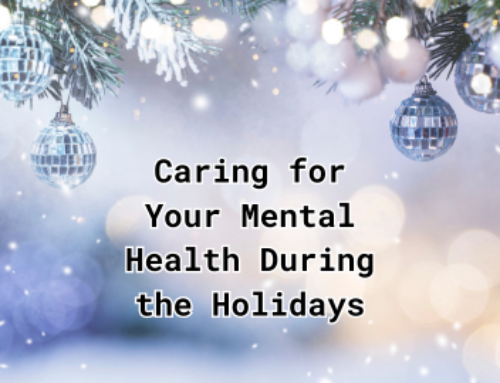Feeling SAD?
Autumn is coming to an end, and it’s now the beginning of the winter season. That means lower temperatures, reduced hours of daylight, and more time spent indoors. Given that this is the normal order of things, we often don’t notice how much our moods are tied to the seasons. Factors like reduced sunlight can affect us more than we’d expect, and it can put a huge downer on our winters, including (even especially) the holidays.
We call this phenomenon “SAD,” or seasonal affective disorder. It’s a common depressive disorder that strikes during winter, or the colder, darker season depending on your location. People who are already depressed are particularly susceptible, but SAD hits people who don’t have depression or anxiety disorders too.
Signs of seasonal affective disorder include:
Lethargy and lack of initiative
Physical fatigue
Sadness and a low mood
Trouble focusing, even dissociation in severe cases
Irritability, exacerbated by frustration from feeling weighed down
Food cravings, particularly sugar and carbs
Sleep disturbances, especially sleeping too much and having trouble getting up
Feelings of hopelessness
A sense of time displacement
If your SAD is affecting your life or if you recognize it as just another variation of the depression you already have, reach out for help. Help is for you. Help is for everybody, and there’s nothing weak about wanting it. You are your own best advocate and deserve to be able to go about your business without depression, whether persistent or connected to SAD, to hold you back.
Here are some things you can do on your own to help with SAD:
Go outside and get time under the sky, even if it’s cloudy
Know that the SAD will pass
Brighten the indoors with light fixtures such as those designed to mimic natural light
Move around according to your ability, like stretching, chores, playing with a pet, etc
Find what stimulates your mind, like reading, playing cards, or practicing a language
Drink plenty of water
Try unsweetened herbal teas like oolong and mint to brighten your mood and benefit your body
Give yourself healthy pleasures like your favorite music or a new magazine
Be merciful and kind to yourself
Connect with people who are positive to be around
Journal in a way that is effective and sustainable for you
Talk to someone; as many people as you want to
Depression is the #1 mental health problem in the USA today, and far too many people experience treatment resistant depression. If your depression just won’t quit, talk to us about services like TMS and our metabolic workup treatment. TMS appointments don’t take long and require no downtime, so you can get back to your day. If you qualify, most major health insurance carriers will cover it as well. Contact us on our website or call (585) 442-6960. If you’re experiencing a crisis, call 911 or try the SAMHSA hotline.




